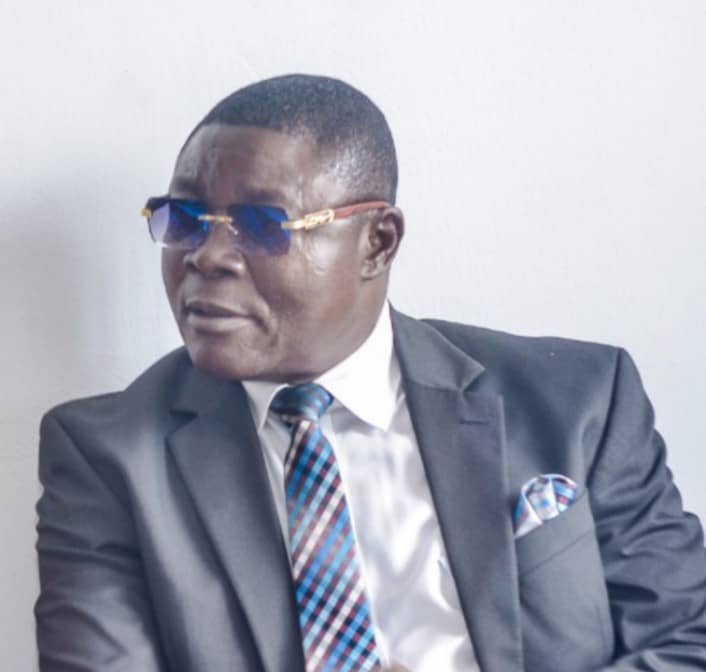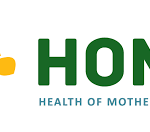By PROF. UWAKWE ABUGU, Ph.D, Chf.IMHL, FICA, ACS
Dean, Faculty of Law University of Abuja
Director General, Institute of Medical and Health Law
President, Lifeline Centre for Medical and Health Rights Advocacy
BEING TEXT OF THE PAPER PRESENTED AT THE NIGERIAN HUMAN RIGHT CONFERENCE 2025 ORGANIZED BY
CALL A LAWYER
AT
ENUGU ON THE 25TH DAY OF JULY, 2025
1 Protocol
2 Introduction
Human existence and health are intrinsically connected. Health is an important asset to every individual as it guarantees among others, the ability to generate wealth and lead productive life. Ill health can impede productivity and reduce economic power. No wonder human beings can afford to make financial sacrifices if a healthier life is guaranteed. Hence, when the issue of health is raised, it is always a matter of immense concern as good health is better than silver and gold.
Despite the obvious importance of health to humanity, arguments still persist as to whether the ‘Medical Right’ is a Human Right. Although the ‘right to health’ is a controversial right and has been the subject of many debates, it can be argued that it is a fundamental part of an individual’s rights as a human being if that individual is to live a dignified life. Or is a life of dignity achievable without access to health? If the answer is no, then it raises a further question; why has the right to health not been fully realized in Nigeria?
This paper is a brief excursion into the legal framework for the enforcement of medical rights as human rights under the Nigerian law.
3 Conceptual Clarifications.
3.1. Medical Rights.
Medical rights refer to the rights of individuals to receive appropriate medical care and treatment. These rights are based on the principles of healthcare ethics, including respect for autonomy, beneficence, non-maleficence, and justice.
Examples of Medical Rights in Practice:
Patients have the right to refuse medical treatment, including life-sustaining treatment.
Patients have the right to access their medical records and request corrections.
Patients have the right to receive culturally sensitive care.
By understanding and upholding medical rights, healthcare providers can deliver care that respects patients’ autonomy, dignity, and well-being..
3.2 Human Rights.
Human rights are basically defined as inalienable fundamental rights to which a person is inherently entitled to simply because she or he is a human being. The concept of human rights is based on the belief that every human being is entitled to enjoy her/his rights without discrimination. Human rights differ from other rights in two respects. Firstly, they are characterized by being:
Inherent in all human beings by virtue of their humanity alone (which entails that they do not have to be purchased or to be granted);
Inalienable (within qualified legal boundaries); and
Equally applicable to all.
Secondly, the main duties deriving from human rights fall on States and their authorities or agents, not on individuals.
One important implication of these characteristics is that human rights must themselves be protected by law (‘the rule of law’). Furthermore, any disputes about these rights should be submitted for adjudication through a competent, impartial and independent tribunal or court, applying procedures which ensure full equality and fairness to all the parties, and determining the question in accordance with clear, specific and existing laws.
Human rights in this category are generally referred to as ‘fundamental freedoms/ Rights’, as human rights are viewed as a precondition for leading a dignified human existence.
Although human rights have been classified in different manners, it is important to note that under the international human rights law, pursuant to the Vienna Declaration and Program of Action (1993), para. 5), all human rights are universal, indivisible and interrelated. Implying that no human right is more important than the other.
4 Classification of Human Rights:
Human Rights are classified into the following:
4.1 Classic and Social Rights
One classification used is the division between ‘classic’ and ‘social’ rights. ‘Classic’ rights are often seen to require the non-intervention of the State (negative obligation), and ‘social rights’ as requiring active intervention on the part of the State (positive obligations). In other words, classic rights entail an obligation for the State to refrain from certain actions, while social rights oblige the State to provide certain guarantees. The State does not merely have the obligation to respect these rights, but must also guarantee that people can effectively enjoy them. Hence, the right to a fair trial, for instance, requires well-trained judges, prosecutors, lawyers and police officers, as well as administrative support.
On the other hand, most ‘social’ rights contain elements that require the State to abstain from interfering with the individual’s exercise of the right. As several commentators note, the right to food includes the right for everyone to procure their own food supply without interference; the right to housing implies the right not to be a victim of forced eviction; the right to work encompasses the individual’s right to choose his/her own work and also requires the State not to hinder a person from working and to abstain from measures that would increase unemployment; the right to education implies the freedom to establish and direct educational establishments; and the right to the highest attainable standard of health implies the obligation to make provision for adequate health care.
4.2 Civil, Political, Economic, Social and Cultural Rights
4.2.1 Civil rights
The term ‘civil rights’ is often used with reference to the rights set out in the first eighteen articles of the Universal Declaration of Human Rights, 1948 (UDHR), almost all of which are also set out as binding treaty norms in the International Covenants on Civil and Political Rights, 1966 (ICCPR). From this group, a further set of ‘physical integrity rights’ has been identified, which concern the right to life, liberty and security of the person, and which offer protection from physical violence against the person, torture and inhuman treatment, arbitrary arrest, detention, exile, slavery and servitude, interference with one’s privacy and right of ownership, restriction of one’s freedom of movement, and the freedom of thought, conscience and religion.
Although not strictly an integrity right, the right to equal treatment and protection in law certainly qualifies as a civil right. However, this right plays an essential role in the realization of economic, social and cultural rights.
4.2.2 Political rights
In general, political rights are those set out in Articles 19 to 21 UDHR and also codified in the ICCPR. They include freedom of expression, freedom of association and assembly, the right to take part in the government of one’s country and the right to vote and stand for election at genuine periodic elections held by secret ballot (see Articles 18, 19, 21, 22 and 25 ICCPR).
4.2.3 Economic and social rights
The economic and social rights are listed in Articles 22 to 26 UDHR, and further developed and set out as binding treaty norms in the International Covenants on Economic, Social and Cultural Rights (ICESCR). These rights provide the conditions necessary for prosperity and wellbeing. Economic rights refer, for example, to the right to property, the right to work, which one freely chooses or accepts, the right to a fair wage, a reasonable limitation of working hours, and trade union rights. Social rights are those rights necessary for an adequate standard of living, including rights to health, shelter, food, social care, and the right to education (see Articles 6 to 14 ICESCR).
4.2.4 Cultural rights
The UDHR lists cultural rights in Articles 27 and 28: the right to participate freely in the cultural life of the community, the right to share in scientific advancement and the right to the protection of the moral and material interests resulting from any scientific, literary or artistic production of which one is the author (see also Article 15 ICESCR and Article 27 ICCPR).
4.3 The alleged dichotomy between civil and political rights, and economic, social and cultural rights
It has been argued that civil and political rights are justiciable whereas economic, social and cultural rights are not. In other words, this view holds that only violations of civil and political rights can be adjudicated by judicial or action, while economic, social and cultural rights are ‘by their nature’ non-justiciable.
Over the years, economic, social and cultural rights have been re-examined and their juridical validity and applicability have been increasingly stressed. During the last decade, we have witnessed the development of a large and growing body of caselaw of domestic courts concerning economic, social and cultural rights. These case laws, at the national and international level, suggests a potential role for creative and sensitive decisions of judicial and quasi-judicial bodies with respect to these rights.
Many international fora have elaborated on the indivisibility and interdependency of human rights. As Stated in the 1993 Vienna Declaration and Programme of Action: ‘All human rights are universal, indivisible and interdependent and interrelated. The international community must treat human rights globally in a fair and equal manner, on the same footing, and with the same emphasis.’
The European Union (EU) and its member States have also made it clear on numerous occasions that they subscribe to the view that both categories of human rights are of equal importance, in the sense that an existence worthy of human dignity is only possible if both civil and political rights and economic, social and cultural rights are enjoyed.
From the above, it is trite to State that the UNDHR of 1948 is a representation of the rights contained in and classified under the chapter 4 Rights of the Constitution of the Federal Republic of Nigeria 1994, otherwise known as the Fundamental Human Rights. A critical question that requires that requires a valid response is:
In Nigeria the provision of Section 17(3) of the Constitution relating to Medical and health rights is found in chapter II which by section 6(6)(C) of the Constitution is expressed to be non-justiciable. However, by item 60 of the exclusive list contained in the 1st schedule to the constitution, any item covered in chapter II becomes justiciable and enforceable by action once such item is legislated upon by the National Assembly.
By this token, the National Health Act, 2014, the National Health Insurance Authority Act, 2023, the Hygiene Centre for Disease Control Act, 2018, etc have given vent to the health and medical rights envisaged in section 17(3) of the constitution.
In other jurisdiction like India, Kenya and South Africa, Social, economic and cultural rights have been sufficiently enforced by action without any legislative further assurances.
The Supreme court of India apotheosized the need for rights in Chapter II and Chapter IV to be treated conjunctively in the popular case of Paschin Banga Khat mazdoor Samity v. State of West Bengal and Anor. (1995) 4SCC77 in that case a man sued the State because he was denied a bed in the Hospital which was full after he had an injury from falling off a train the Supreme Court of India held that the right to life of a citizen included the provision of timely medical care to preserve life (Note that Art. 37 of the Indian constitution is similar to Section 6(6)(C) of our constitution which ousts the jurisdiction of the court.
5.0 Overview of Medical Rights of Patients under the Nigerian Law
Where a patient submits himself or herself to a Healthcare provider for treatment; there exist a contractual relationship between the provider and the patient. This raises rights and obligations for both the patient and the medical doctor/facility. The terms of a contract between a doctor and a patient may contain express and implied terms. A Consent Form is an example of an agreement containing express terms. Although there is a limit to what parties can agree on; parties cannot agree on anything that is contrary to public policy. In every contract between a professional and his client, there is always an implied term that the professional will use reasonable care and skill in discharging his obligations to his patient. Although the law does not imply a warranty that the doctor will achieve the desired result or a guarantee that the treatment will be successful; but reasonable care and skill must be deployed.
5.1 Rights of confidentiality and access to medical information (S.26 NHA, 2014)
Patients have the right to expect that information about them will be held in confidence by their doctors. The practical necessity of maintaining medical confidentiality is further reinforced by ethical imperative placed on the medical professional by the Hippocratic Oath. Therefore, a doctor is under a duty not to disclose voluntarily without the consent of his patient information which he, as a doctor has gained in his professional capacity save in some exceptional circumstances. The legal duty of confidentiality owed by a doctor to his patient is not absolute. It is subject to certain exceptions: disclosure under the requirement of law (to employees, insurance companies etc), disclosure in the interest of the public, and disclosure with the consent of the patient. Where a doctor feels a patient is incapable of giving consent by virtue of immaturity, illness or mental capacity; the doctor may disclose the information to an appropriate person or an authority. It must be noted that the duty of confidentiality survives the patient’s death.
A patient has the right to inspect and obtain copies of his or her medical records. However, if a patient will not be able to handle certain information; an individual other than the patient may be identified.
5.2 Right to Full Disclosure and Informed Consent:
The patient has the right to be given a comprehensive and accurate information concerning his health to enable him make guided decisions concerning the best treatment options or medical procedure to be administered. The Physician informs the patient of the range of diagnostic procedures and treatment options available, the benefits, risks, cost and consequences of each treatment option or procedure. It is the information at the disposal of the patient that enables him give his consent. This is because every human being of legal adulthood and sound mind, has the right to know and decide what should be done with his body. Failure to obtain the patient’s consent before treatment is administered will make the doctor liable for the tort of assault and battery, and can also amount to a breach of the patient’s fundamental human rights. The physician is ethically bound to disclose all relevant information to the patient in a simple and unambiguous manner, considering the patient’s literacy.
Where a physician fails to obtain the consent of the patient in treatment, he is deemed to have infringed on the patient’s right to dignity of human person.
Consent could be express or implied; it is express when an oral or written consent is given; and implied when a patient presents himself for minor procedures like clinical tests, etc.
Although the physician under the Act, is permitted to withhold information about the patient’s health in circumstances where substantial evidence shows that the disclosure of the health status of the patient will not be in the best interest of the patient, the physician is advised that in order to avoid any form of medical negligence during such a situation, the formal consent of the
patient should be sought through his next of kin or guardian or legal representative.
They can ask for copies of their medical reports. The right to information also extends to full disclosure of costs and available services.
Access to emergency care:
The health care provider must not refuse a patient’s treatment in emergency situations. Every patient in emergency circumstances is entitled to adequate treatment by the health care service provider or health establishment. Section 20 of the National Health Act, 2014, provides thus;
“A health care provider, health worker or health establishment shall not refuse a person treatment for any reason.”
It is therefore safe to say that the urgent, immediate and sufficient intervention and care in the event of an emergency, is considered most expedient, over other factors including; cost and payment, as well as law enforcement requirements, if any. It is a legally protected right that can be enforced if breached. It is noteworthy that when this right is breached, and the defendant found liable, it amounts to an offence which is punishable with a
fine of 100,000 or an imprison term not exceeding six months or both.
5.4 Right to Dignity and Respect:
Patients have the right to be treated with respect and dignity, regardless of their gender, race, religion, or any other personal feature/characteristic.
This includes being treated courteously, having their cultural and religious views considered, and not facing discrimination.
5.5. Right to religious assistance:
That a patient explores medical treatment or health services, does not take away his right to freedom of religion. The Supreme Court in the case of Medical and Dental Practitioners Disciplinary Tribunal v. Dr. John E, N. Okonkwo affirmed the right to self-determination in the context of freedom of thought, conscience and religion. He is still empowered to seek religious assistance where he deems fit for the purpose of his health, carry out his normal religious practices like prayers, studying the Holy Writ, etc. However, in the exercise of this right, he is to consider the peace and privacy of other patients and health care service providers. The Supreme Court affirming the limit of this right, held thus:
The right to freedom of thought, conscience and religion implies a right not to be prevented, without lawful justification, from choosing the course of one’s life, fashioned on what one believes in, and a right not to be coerced into acting contrary to one’s life, religious belief. The limits of these freedoms, as in all cases, are where they impinge on the rights of others or where they put the welfare of the society or public health in jeopardy.
Religious practice like fasting is sometimes not advisable for patients receiving treatment or having some health complications. This is merely an advice and not binding on the patient.
5.6 Right to Clean, Safe and Quality Care:
Patients have the right to receive quality care in a clean and safe environment without any form of compromise to the standards set forth for medical care. This includes also having access to emergency care.
Right to refuse treatment:
Patients have the right to refuse any treatment that goes against their religious beliefs or any such treatment they feel uncomfortable with.
The Supreme Court by way of obiter explained infra:
I am completely satisfied that under normal circumstances no medical doctor can forcibly proceed to apply treatment to a patient of full age and sane faculty without the patient’s consent, particularly if that treatment is of a radical nature such as surgery or blood transfusion. So, the doctor must ensure that there is a valid consent and that he does nothing that will amount to a trespass to the patient. Secondly, he must exercise a duty of
care to advise and inform the patient of the risks involved in the contemplated treatment and the consequences of his refusal to give consent.” per Uwaifo JSC.
5.8 Right to express dissatisfaction:
Pursuant to section 30 of the National Health Act, a patient has the right to express their dissatisfaction with the quality of care received and to have their concerns addressed.
This may involve using established channels within the healthcare facility or seeking redress through legal means.
5.9 Right to Second Opinion:
Patients have the right to seek a second opinion from another healthcare provider regarding their diagnosis or treatment.
6.0 Legal Framework for Enforcement of Medical Rights in Nigeria.
In Nigeria, medical practice is regulated by a number of statutes; among which are: The Medical and Dental Practitioners Act, the National Health Act 2014; the Code of Medical Ethics in Nigeria; the Constitution of the Federal Republic of Nigeria 1999 (as amended); the Medical Oath; the Compulsory Treatment and Care for Victims of Gunshot Act; the Patients’ Bill of Rights; and the Criminal Code Act.
6.1 Constitution of the Federal Republic of Nigeria, 1999.
Apart from setting out the medical and health rights in S.17(3) it proceeded to devote the entire Chapter IV to the entrenchment of fundamental rights which include right to life, right to personal liberty, right to the dignity of the human person and right to freedom of thought, conscience and religion. Certainly, none of these rights could be anything meaningful without securing the right to medical and health care.
Please see the discussion on the justiciability of Chapter II.
6.2 The National Health Act 2014.
The National Health Act was enacted in 2014 as the first comprehensive domestic statute on health to provide a framework for the regulation, development and management of a national health care system in Nigeria in line with section 1 of the Act. The National Health System so established will then define and provide a framework for standards and regulation of health services in Nigeria. The system will ensure the protection, promotion and fulfilment of the rights of Nigerians to have access to health care services, and the provision by the government, of the best possible health services within the limits of the available resources while streamlining the obligations of health care providers. By section 2(1) (i) of the Act, the government is duty bound to make available good quality, safe and affordable essential drugs, and medical commodities. This is indeed a novel provision of the NHA 2014. Another commendable feature of the National Health Act is the provision that all Nigerians shall be entitled to a basic minimum package of health services. This provision reinforces the right of the average Nigerian to access to health care services. Thus, responsibility is placed on the government as the duty holder to ensure the attainment of what will suffice as a basic minimum package of health services having regard to the available resources. It has been argued that ‘The use of the word “right” in the Act to denote the entitlements of Nigerians to a healthcare system is illustrative of the legislators’ recognition of healthcare as an essential human right.
6.3 Compulsory Treatment and Care for Gunshots Victims Act 2017.
The Compulsory Treatment and Care for Victims of Gunshot Act 2017 seeks to ensure that ensures victims of gunshot wounds receive prompt and adequate medical treatment. The Act aims to protect the rights of gunshot victims and ensure they receive timely medical attention without unnecessary delays or financial barriers
Key provisions include:
– Right to Treatment: Hospitals must accept and treat gunshot victims with or without police clearance or initial payment.
– Duty to Assist: Every person, including security agents, must render assistance to gunshot victims and ensure they are taken to the nearest hospital.
– Notification of Police: Hospitals must report gunshot victims to the nearest police station within two hours of commencing treatment.
– Protection of Volunteer: Volunteers or helpers of gunshot victims should be treated with respect and not subjected to unnecessary interrogation.
– Record Keeping: Hospitals must keep adequate records of treatment for gunshot victims.
– Notification of Family: Hospitals must notify family members or relatives of gunshot victims within 24 hours of becoming aware of the victim’s identity.
Penalties for Non-Compliance:
– Hospitals that fail to report gunshot victims to the police may be fined N100,000.
– Individuals who fail to assist gunshot victims or withhold information may face imprisonment or fines.
– Any person or authority whose failure to perform their duty under the Act results in the unnecessary death of a gunshot victim may be liable to a fine of N500,000 or imprisonment for five years or both.
7.0 Methods of Enforcement of Medical Rights in Nigeria
Enforcement of medical rights in Nigeria involves several mechanisms that individuals and institutions can use to seek redress when their rights to health and medical care are violated. Some of the primary methods for the enforcement of medical rights in Nigeria are:
Judicial Enforcement (Litigation)
This Method can be subdivided into:
Constitutional/Civil Claims:
Though the right to health is not justiciable under Chapter II of the Nigerian Constitution, it can be enforced indirectly through related fundamental rights in Chapter IV (e.g., right to life under Section 33). Nigerian courts have increasingly accepted arguments connecting the right to health with other enforceable rights.
A civil claim can be instituted through the Fundamental Rights Enforcement procedure for any violation of medical right. As Stated above, such violation can be anchored on a person’s right to life, right to liberty, right to human dignity etc.
A patient can also file a civil action against a medical practitioner or healthcare provider by issuing a writ of summons at the appropriate court, claiming special and general damages against the medical practitioner/ healthcare provider in instances where the right of such patient has been violated. In a situation where the victim of medical negligence is dead, thereby violating such victim’s right to life, a representative of the eState of the deceased can commence a suit for wrongful death against the medical practitioner
7.1 Criminal Prosecution:
Any person seeking to enforce his or her medical rights under criminal law in the gravest of circumstances can file a report at the Police Station. The Police will then investigate the suspected medical practitioner/ healthcare provider and where their investigation reveals gross violation of medical rights, they may prosecute the matter. In this instance, the Police can file a criminal suit against the medical practitioner/healthcare provider in court for gross violation of the person’s medical rights, or where death of the patient has occurred.
Conducts that can lead to criminal prosecution of medical rights are; Sexual abuse of patients, fraud, assault or battery of the patient, eg; performing a surgery without consent, manslaughter etc.
7.2 National Human Rights Commission (NHRC)
Individuals can petition the NHRC for violations related to their medical rights by medical professionals. The NHRC can investigate and make recommendations or refer cases for prosecution.
7.3 Professional Disciplinary Procedures:
There are professional disciplinary measures that can be explored in the enforcement of medical rights in Nigeria especially as it relates to medical professionals in Nigeria. A classical example is the enforcement through:
Medical and Dental Council of Nigeria (MDCN)
The medical profession in Nigeria is regulated by the Medical and Dental Council of Nigeria (MDCN). The MDCN has two disciplinary bodies: The Medical and Dental Practitioners Investigating Panel (“the Panel”) and the Medical and Dental Practitioners Disciplinary Tribunal (“MDPDT” or “the Tribunal”). The duty of investigating the substance of any allegation of infamous conduct in a professional respect is vested in the Medical and Dental Practitioners Investigating Panel. Once the Panel concludes its investigation and finds that there is substance in the allegation against a practitioner, the matter is remitted to the Medical and Dental Practitioners Disciplinary Tribunal for trial.
An aggrieved victim of medical rights violation can file a petition against the medical practitioner and send it to the office of the MDCN. Following that, the Panel shall investigate the matter and if the medical practitioner is found liable of medical negligence based on the preliminary investigation, the Panel shall conclude that a prima facie case has been made out against the practitioner. Then the Panel shall forward its findings to the Tribunal and the Tribunal shall then commence a trial against the errant medical practitioner.
At the trial, the affected practitioner is given an opportunity to defend his actions and professional misconduct. Where the Tribunal finds the practitioner guilty of infamous conduct in a professional respect as contained in the charge preferred against him, the Tribunal can impose any of the following statutory penalties depending upon the gravity of the offence and the attitude of the practitioner before and during the investigation and/or trial:
Order the Registrar to strike the practitioner’s name off the relevant register or registers.
Suspend the practitioner from practice for a period specified in the directive, not exceeding six months.
Admonish the practitioner.
This is in accordance with Sections 15 and 16 of the Medical and Dental Practitioners Act.
However, a medical practitioner has a right to appeal against the decision of the Tribunal, by filing an appeal at the Court of Appeal. Additionally, the Tribunal’s finding of medical rights violation against the medical practitioner does not exempt him or her from either criminal or civil liability.
8.0 Recommendation
It is therefore recommended that all legal framework should be employed to assert medical right. This right should also be enforced through the right to life, the right to dignity of the human person and other related rights as discussed in this paper. Judicial decisions should be devoid of political sentiments in order to achieve legal revolution. The interpretative role of the Court is quite germane and should be utilized in extending the frontiers of our jurisprudence to level up to present circumstances. The Supreme Court has laid the foundation to assert socio-economic rights and by implication, the right to health. Consequently, litigating in this respect is not out of place and should be matched with strong judicial interventions. More Supreme Court pronouncements such as that in Abacha v Fawehinmi are expected but cases must first be determined in the High Court before there is a final appeal to the Supreme Court in the judicial cadre. Thus, High Court judges should be allowed to perform their judicial functions without distraction or fear of frequent petitions to the disciplinary body for judicial officers; National Judicial Council. If Nigeria must attain legal revolution and enforce the medical right and all other socio-economic rights, all hands must be on deck, and the laws must continually be tested in courts so as to continue to gain absolute validity and credence.
9.0 Conclusion
The entrenchment of human rights clauses in the written constitutions of developing countries, including Nigeria, is one noticeable legal development in these countries. The idea of a Bill of Rights derives from the theory that the individual citizen has rights upon which the State must not intrude. This idea is further fortified by the fact that everyone accepts that government exist not only to protect these rights but also to enhance them. Providing affordable healthcare on the basis of equality in respect of access to them fosters the enjoyment of several basic human rights. Every person is entitled to right to health. This is because other basic rights cannot be enjoyed without the right to health which has a linkage to the rights to life, privacy, freedom of thought, dignity of the human person and freedom from discrimination. Thus, the right to health finds expression through national constitutions, legislation, and international conventions. It only lies on nations to make available and accessible medical and health facilities and services. This can be achieved through the nation’s available resources. Every nation aspiring to be or to remain great would strive to achieve the highest attainable standard of physical and mental health knowing that the health of a nation is the wealth of such nation.
The right to health is also articulated in the Constitution and the domesticated international treaty. None of these laws ousts the jurisdiction of the court to entertain matters relating to human rights and the right to health is a human right recognized internationally. As an indomitable engine of social change, the role of the court cannot be over-emphasized. More so, as the defender of fundamental rights and the last hope of the common man, the court has a major role to play in expanding the frontiers of Nigerian jurisprudence by developing fundamental democratic values of the rule of law, equality before the law, human rights and liberties to meet changing social situations and circumstances through its interpretative capability. The human rights dimension of this right must be appreciated in order for there to be more progress in enforcing medical and health rights in Nigeria.
Editor
- Editor
Editor
Jude Ossai (JP) a veteran journalist is a National Diploma holder in Mass Communication from Ogwashi-Uku Polytechnic Ogwashi-Uku, Delta State. He also studied at Enugu State University of Science and Technology (ESUT) Enugu and Imo State University, Owerri for his first and second degrees in Mass Communication, respectively.
He writes extensively on politics, crime, corruption, climate change, healthcare, human rights, social justice, among others.
×


Jude Ossai (JP) a veteran journalist is a National Diploma holder in Mass Communication from Ogwashi-Uku Polytechnic Ogwashi-Uku, Delta State. He also studied at Enugu State University of Science and Technology (ESUT) Enugu and Imo State University, Owerri for his first and second degrees in Mass Communication, respectively.
He writes extensively on politics, crime, corruption, climate change, healthcare, human rights, social justice, among others.













Comment here